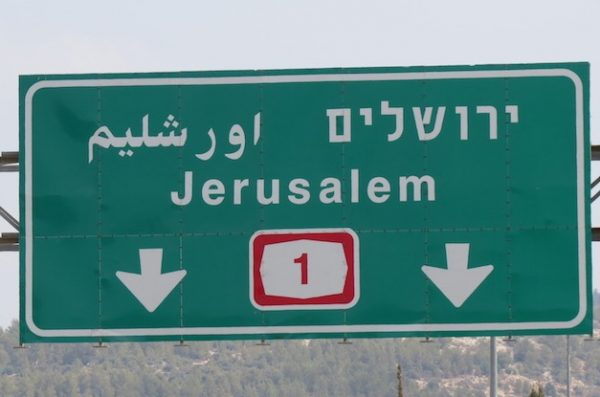Israel's cabinet submits bill to declare 'Jewish nation state'
Cabinet drafts bill declaring Israel as 'national home of the Jewish people' and degrades Arabic from official language status

Israel's prime minister, Benjamin Netanyahu (Reuters)

Sunday 7 May 2017
Israel's cabinet breathed new life on Sunday into efforts to anchor in law the country's status as a Jewish state and revokes Arabic's "official language" status, in legislation Palestinians have described as an obstacle to peace.
A ministerial committee approved a revised version of a bill first proposed in 2011 that declares the "State of Israel is the national home of the Jewish people," its author, Avi Dichter of Prime Minister Benjamin Netanyahu's right-wing Likud party, wrote on Facebook.
The legislation still has to go through further drafting by the justice ministry and pass several votes in parliament in what could be a lengthy process.
But the cabinet-level step, two weeks before a visit by US President Donald Trump, could help Netanyahu shore up relations with far-right members of his government and underpin his campaign to press Palestinians to recognise Israel as the "nation-state" of the Jewish people.
Netanyahu has demanded this acknowledgment as a condition for reviving Israeli-Palestinian peace talks that collapsed in 2014 and which Trump has pledged to pursue.
The bill states that "the national language is Hebrew" and downgrades Arabic to "special status," but adds that "its speakers have the right to language-accessible state services".
It says that "every resident of Israel, without distinction of religion or national origin, is entitled to work to preserve his culture, heritage, language and identity," and that "the state may allow a community, including members of the same religion or national origin, to have separate communal settlements".
Palestinians say accepting Netanyahu's call could deny Palestinian refugees of past wars any right of return. Palestinian President Mahmoud Abbas has characterised such "nation-state" legislation as putting "obstacles in the way of peace".
In meetings in Israel, Trump will discuss how he plans to broker peace between Israelis and Palestinians, a goal that has evaded many previous administrations. He is also scheduled to meet Abbas during the trip.
Critics have described the proposed legislation, which also declares that the "right to self determination" in Israel is "unique to the Jewish people" as impinging on the rights of its Arab minority, who make up some 20 percent of the population.
Read more ►
Opponents said that the bill designates only Hebrew as the country's official language, although it requires government services and forms to be available in Arabic as well.
"The nation-state law is tyranny by the majority and 'legally' turns us into second-class citizens," Arab legislator Ayman Odeh wrote on Twitter after the cabinet committee's decision.
Dichter called the move "an important step in entrenching our identity, not only in consciousness of the world but primarily in our own minds".
The revised legislation appeared to soften previous language that would have given Jewish values prominence in law-making and judicial decisions.
Centrists in Netanyahu's government have argued that a "nation-state" bill is unnecessary, noting the 1948 Declaration of Independence has already proclaimed a Jewish state.
They have accused him of pandering to right-wingers, and past versions of the legislation failed to make it through parliament.
Palestinian shot dead
Meanwhile, a Palestinian attempted to stab Israeli police at an entrance to Jerusalem's Old City on Sunday before she was shot dead, Israeli authorities said.
Police said the assailant approached officers while pulling out a knife at Damascus Gate, one of the main entrances to the Old City and the site of a number of such incidents in recent months.
No further details were given on the Palestinian's identity or age. No injuries were reported among Israeli police.
A wave of unrest that erupted in October 2015 has claimed the lives of 262 Palestinians, 41 Israelis, two Americans, one Jordanian, an Eritrean, a Sudanese and a Briton, according to an AFP count.
Most of the Palestinians killed were carrying out knife, gun or car-ramming attacks, Israeli authorities say.
Others were shot dead during protests or clashes, while some were killed in Israeli air strikes on the Gaza Strip.
The violence has greatly subsided in recent months.


